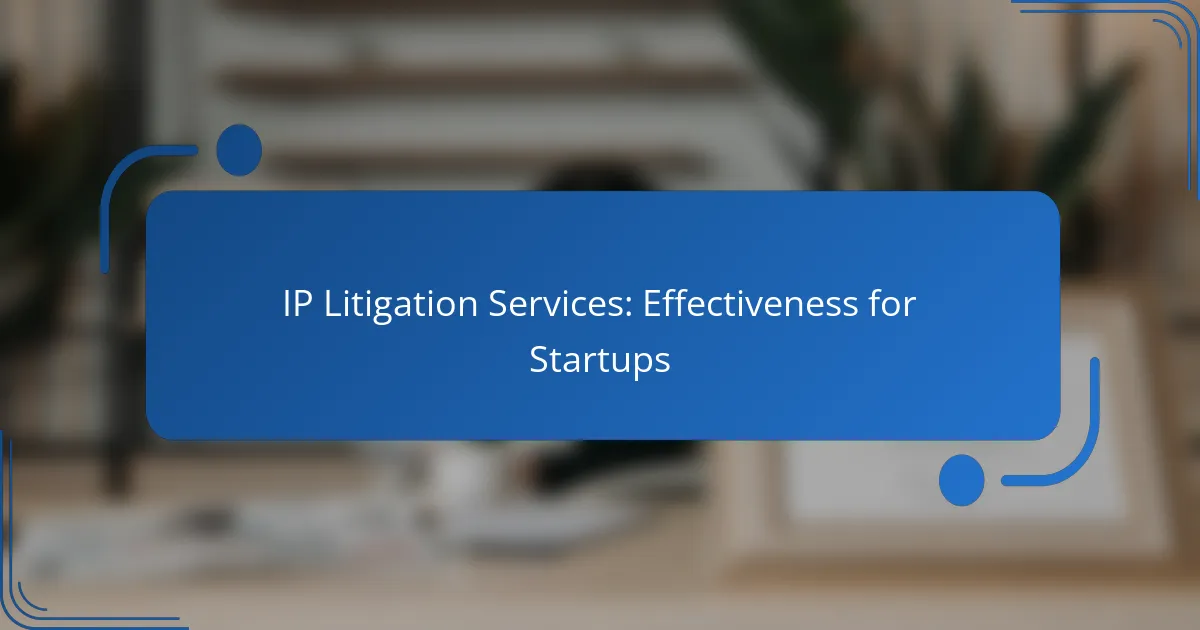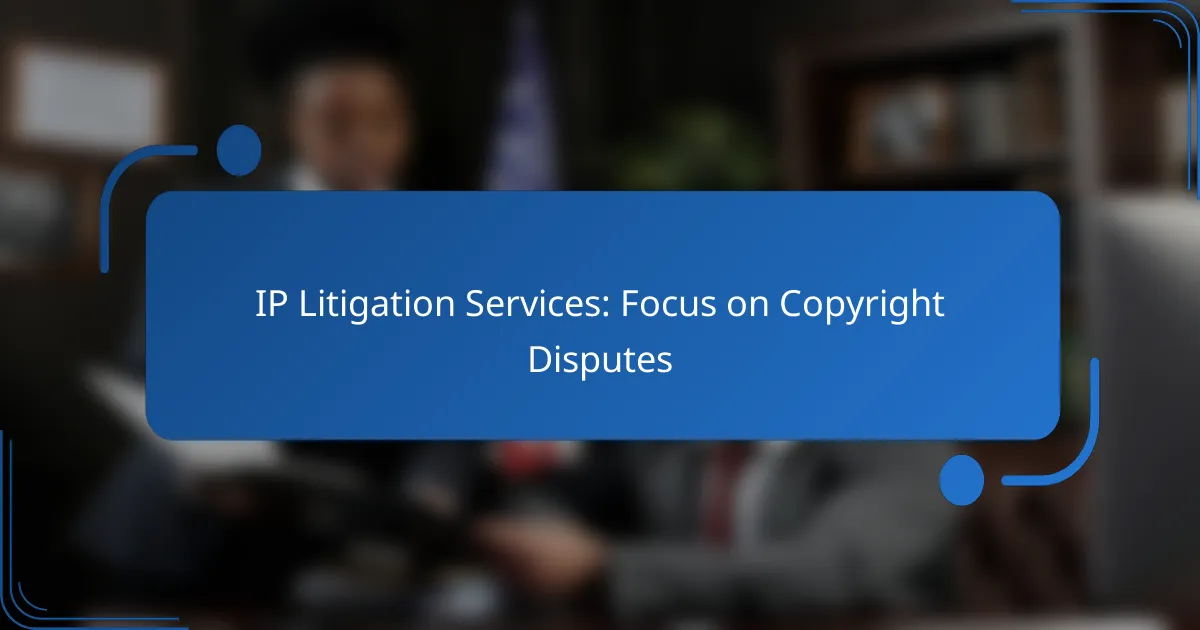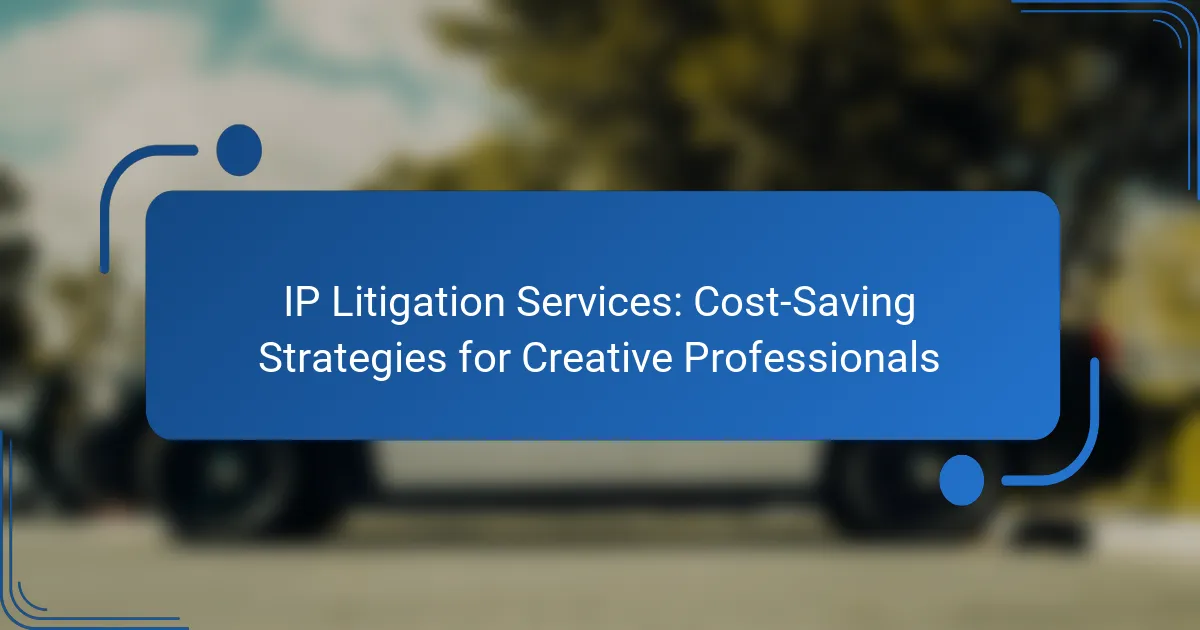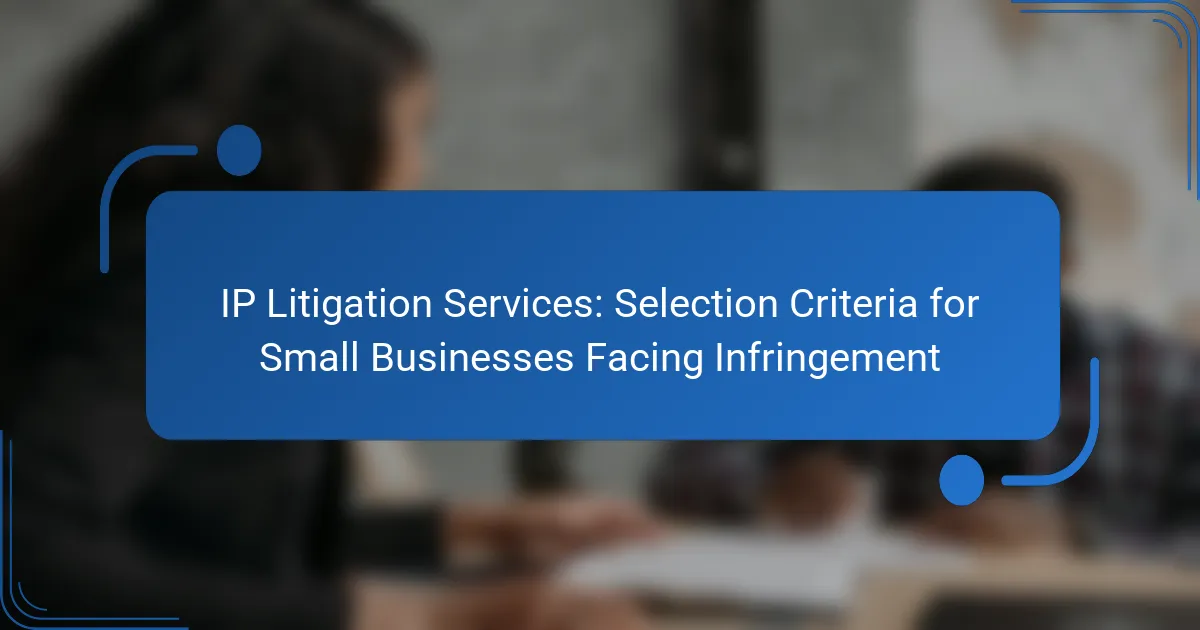IP litigation services are crucial for startups aiming to safeguard their intellectual property rights and enforce their patents effectively. By utilizing these specialized legal services, startups can navigate the complexities of intellectual property law, ensuring they maintain a competitive edge in the market.
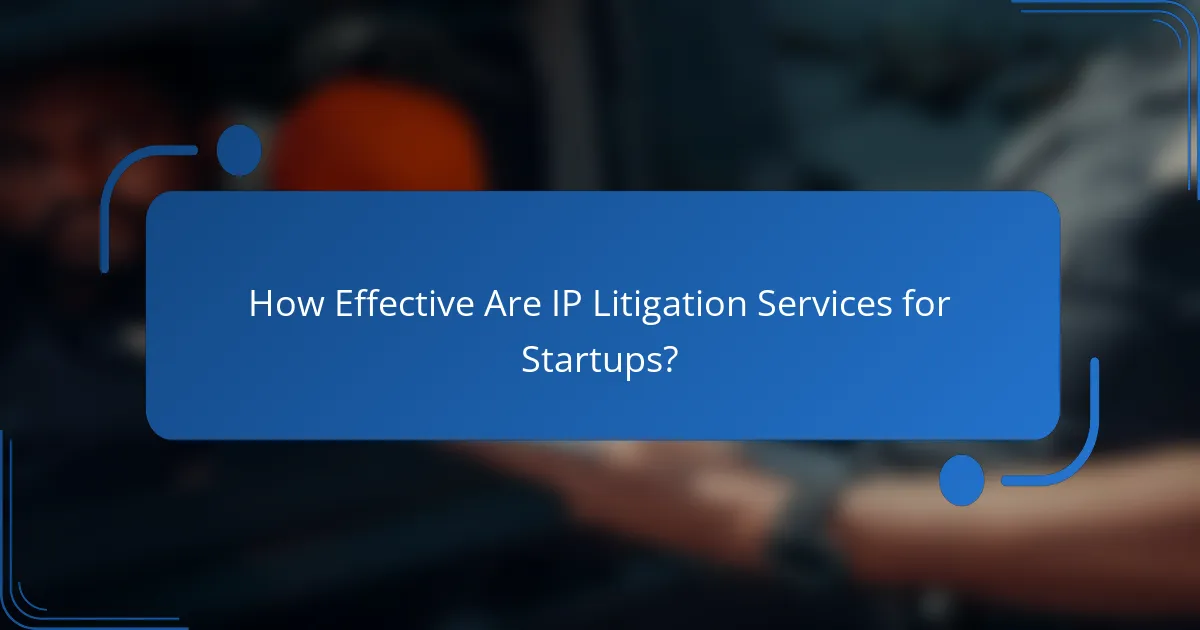
How Effective Are IP Litigation Services for Startups?
IP litigation services can be highly effective for startups, particularly in protecting their intellectual property rights and enforcing patents. By leveraging these services, startups can navigate complex legal landscapes and enhance their market position.
High success rates in enforcing patents
Startups often experience high success rates when enforcing patents through litigation services. This effectiveness stems from a combination of well-prepared legal strategies and the increasing recognition of patent rights in many jurisdictions.
For instance, startups that invest in thorough patent research and documentation before litigation can significantly improve their chances of success. Engaging with IP litigation services early can help identify potential infringement and prepare a robust case.
Cost-effective strategies for startups
While litigation can be expensive, startups can adopt cost-effective strategies to manage expenses. Utilizing alternative dispute resolution methods, such as mediation or arbitration, can often reduce costs compared to traditional court litigation.
Additionally, many IP litigation firms offer flexible pricing models, including contingency fees or payment plans, which can help startups manage cash flow while pursuing their cases. It’s crucial for startups to evaluate these options to find a balance between cost and effective legal representation.
Access to specialized legal expertise
IP litigation services provide startups with access to specialized legal expertise that may not be available in-house. These experts understand the nuances of intellectual property law and can navigate the complexities of litigation effectively.
Startups benefit from the experience of attorneys who have handled similar cases, which can lead to better outcomes. Collaborating with these professionals can also help startups stay updated on relevant laws and regulations, ensuring compliance and strategic advantage in their industry.
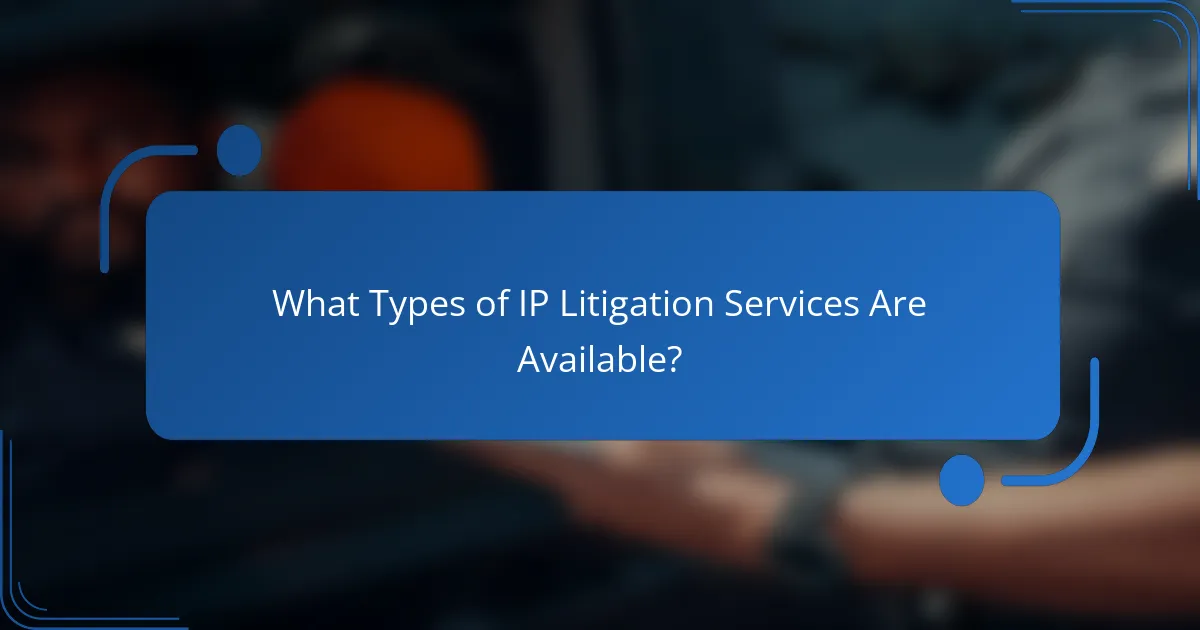
What Types of IP Litigation Services Are Available?
IP litigation services encompass various legal support options for protecting intellectual property rights. Startups can access specialized services for patents, trademarks, and copyrights, each tailored to address specific legal challenges and requirements.
Patent litigation services
Patent litigation services focus on disputes related to patent infringement, validity, and enforcement. Startups facing allegations of infringement or seeking to protect their inventions can benefit from these services, which typically involve detailed analysis and strategic legal representation.
Key steps include conducting a thorough patent search, assessing the validity of the patent in question, and preparing for potential court proceedings. Startups should consider the costs involved, which can range from tens of thousands to millions of dollars, depending on the complexity of the case.
Trademark litigation services
Trademark litigation services address conflicts over brand names, logos, and other identifiers. These services are essential for startups looking to defend their trademarks against infringement or to challenge the validity of a competitor’s mark.
Common actions include filing opposition to trademark registrations, pursuing cease-and-desist letters, and engaging in court litigation. Startups should be aware that legal fees can vary widely, often starting in the low tens of thousands of dollars, depending on the case’s scope and jurisdiction.
Copyright litigation services
Copyright litigation services deal with disputes over the unauthorized use of creative works, such as music, art, and written content. Startups may need these services to protect their original works or to respond to copyright infringement claims.
Effective copyright litigation often involves gathering evidence of ownership, demonstrating infringement, and potentially seeking damages. Startups should be prepared for legal costs that can range from several thousand to hundreds of thousands of dollars, depending on the case’s intricacy and duration.
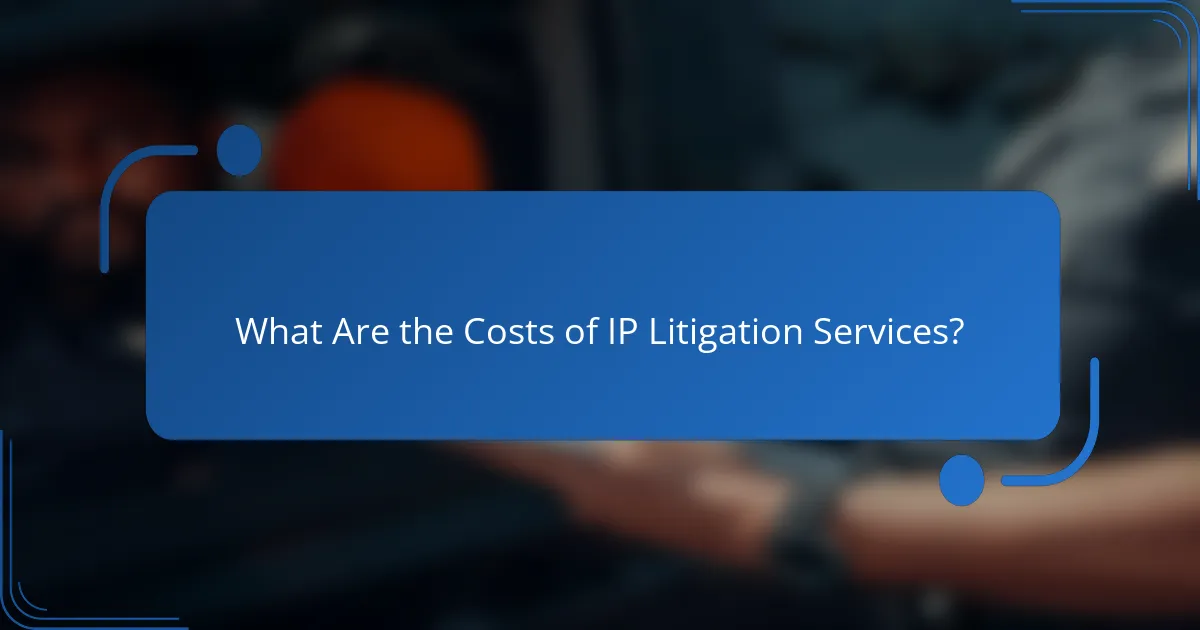
What Are the Costs of IP Litigation Services?
The costs of IP litigation services can vary significantly based on factors such as the complexity of the case, the experience of the legal counsel, and the specific services required. Startups should prepare for both direct fees and potential additional expenses that may arise during the litigation process.
Hourly rates for legal counsel
Hourly rates for legal counsel in IP litigation typically range from several hundred to over a thousand USD per hour, depending on the attorney’s expertise and location. Startups should consider the experience level of the attorney, as seasoned professionals may command higher rates but could also provide more efficient and effective representation.
When budgeting for legal counsel, it’s wise to request estimates of the expected hours needed for various phases of the litigation, such as discovery and trial preparation. This can help in forecasting overall costs and avoiding surprises.
Flat fees for specific services
Some IP litigation services may be offered at flat fees, which can provide more predictability in budgeting. For instance, filing a patent infringement lawsuit or responding to a cease-and-desist letter might have set costs that can be estimated upfront.
Startups should inquire about flat fee options for specific services, as these can help manage expenses effectively. However, be cautious, as flat fees may not cover unforeseen complexities that arise during the litigation process.
Potential hidden costs
In addition to direct legal fees, startups should be aware of potential hidden costs associated with IP litigation. These can include court filing fees, costs for expert witnesses, and expenses related to document preparation and discovery.
To mitigate unexpected expenses, startups should discuss all potential costs with their legal counsel upfront and consider setting aside a contingency budget. This proactive approach can help ensure that the startup is financially prepared for the full scope of litigation-related expenses.
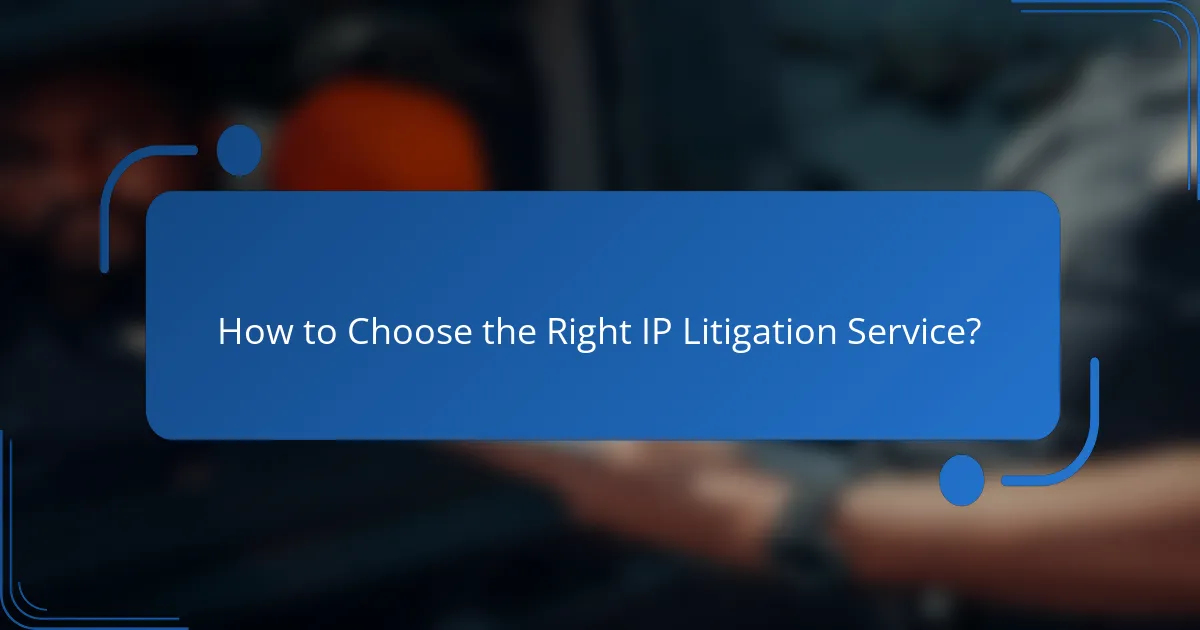
How to Choose the Right IP Litigation Service?
Selecting the right IP litigation service is crucial for startups to protect their intellectual property effectively. Focus on the provider’s experience, client feedback, and the range of services offered to ensure they align with your specific needs.
Evaluating experience and expertise
When choosing an IP litigation service, prioritize firms with substantial experience in intellectual property law, particularly those familiar with your industry. Look for attorneys who have successfully handled cases similar to yours, as their expertise can significantly influence the outcome.
Consider the firm’s track record in litigation outcomes, including settlements and court victories. A history of favorable results can indicate a strong understanding of IP law and effective strategies for defending or asserting your rights.
Assessing client reviews and testimonials
Client reviews and testimonials provide valuable insights into the effectiveness and reliability of an IP litigation service. Look for feedback on their communication, responsiveness, and overall client satisfaction.
Online platforms like Google Reviews or legal directories can help you gauge the reputation of a firm. Pay attention to patterns in reviews, such as consistent praise for specific attorneys or services, which can guide your decision-making process.
Understanding service offerings
Different IP litigation services may offer varying levels of support, from initial consultations to full representation in court. Assess whether the firm provides comprehensive services, including pre-litigation strategies, mediation, and post-litigation support.
Additionally, inquire about their fee structures. Some firms may charge hourly rates, while others might offer flat fees or contingency arrangements. Understanding these options can help you budget effectively and choose a service that fits your financial constraints.
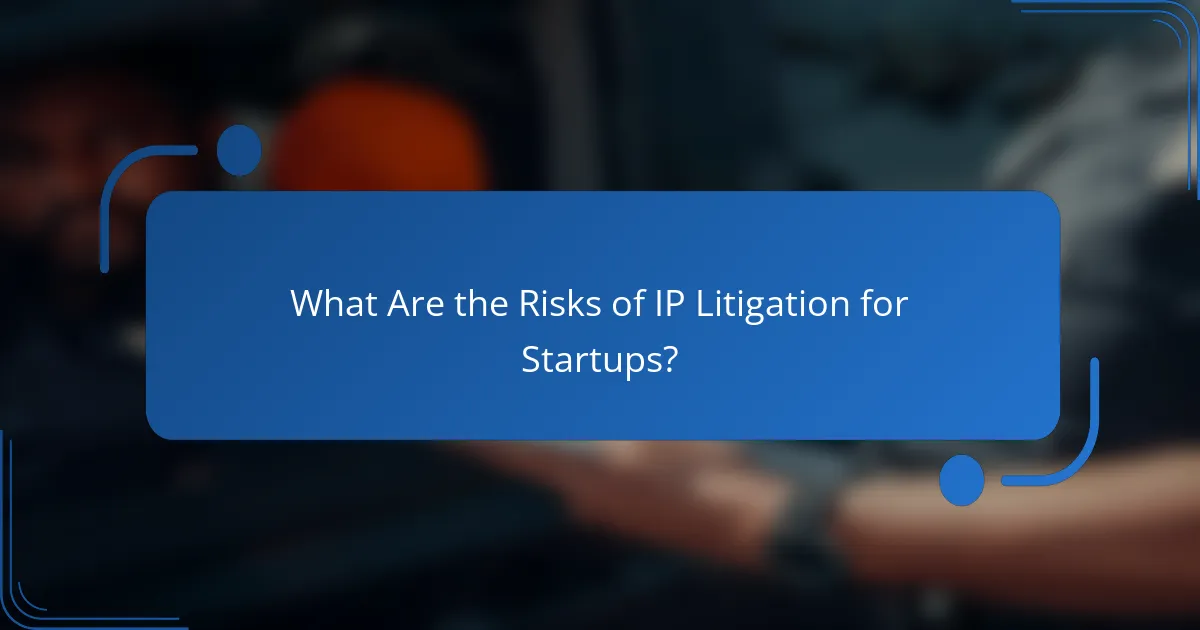
What Are the Risks of IP Litigation for Startups?
IP litigation poses significant risks for startups, primarily due to the potential for high costs and resource drain. Engaging in legal battles can lead to financial strain, operational disruptions, and damage to a startup’s reputation.
Financial risks and potential losses
The financial implications of IP litigation can be severe for startups. Legal fees can quickly escalate into the hundreds of thousands of dollars, and if a startup loses a case, it may face substantial damages or settlements. This financial burden can jeopardize cash flow and even threaten the viability of the business.
Startups should also consider the indirect costs associated with litigation, such as lost opportunities and the diversion of resources away from growth initiatives. It’s crucial to weigh these potential losses against the benefits of pursuing or defending against an IP claim.
Impact on business operations
Litigation can significantly disrupt daily operations for startups. The time and focus required to prepare for court can detract from essential business activities, such as product development and customer engagement. This distraction can hinder a startup’s ability to innovate and compete effectively in the market.
Moreover, the uncertainty surrounding ongoing litigation can affect employee morale and productivity. Startups should develop contingency plans to mitigate operational disruptions, ensuring that core functions continue during legal proceedings.
Reputation management concerns
IP litigation can tarnish a startup’s reputation, especially if the case becomes public. Negative media coverage or perceptions of aggressive legal tactics can alienate customers, partners, and investors. Maintaining a positive brand image is crucial for startups, and litigation can pose a threat to that image.
To manage reputation risks, startups should consider proactive communication strategies. Transparency about the situation and a commitment to resolving disputes amicably can help maintain stakeholder trust and minimize reputational damage.
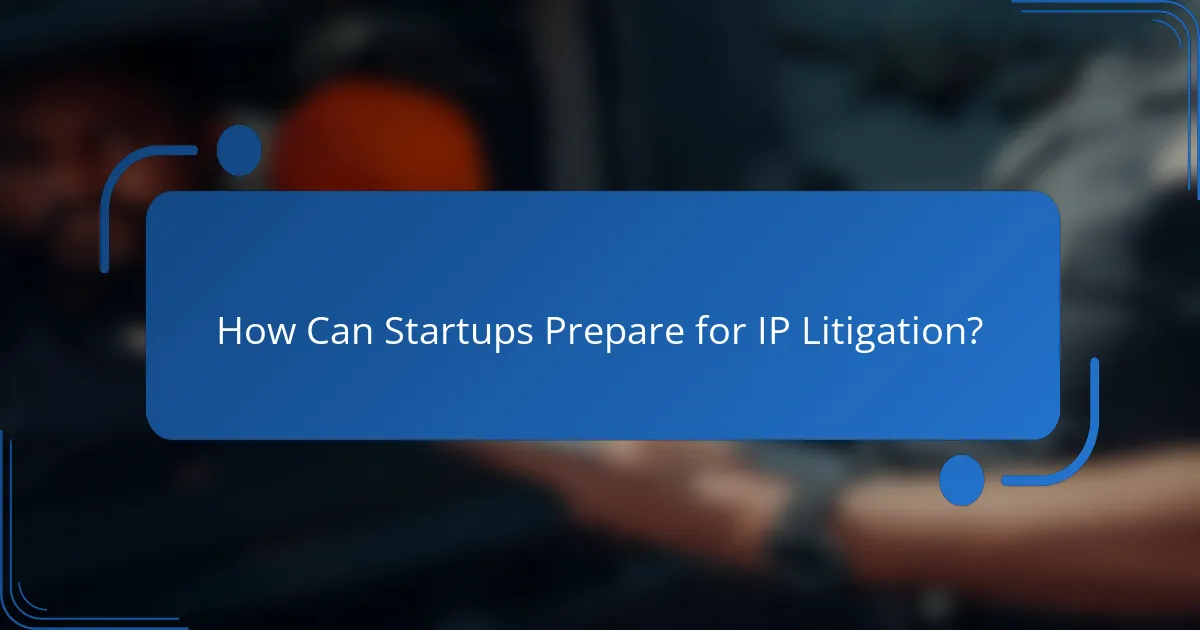
How Can Startups Prepare for IP Litigation?
Startups can prepare for IP litigation by proactively managing their intellectual property assets and establishing a robust legal framework. This involves understanding their IP landscape and ensuring they have the right legal support in place to navigate potential disputes.
Conducting a thorough IP audit
An IP audit is a comprehensive review of a startup’s intellectual property assets, including patents, trademarks, copyrights, and trade secrets. This process helps identify what IP is owned, what needs protection, and any potential vulnerabilities.
Startups should regularly assess their IP portfolio to ensure all assets are properly registered and maintained. This includes checking for expired registrations and ensuring that all relevant agreements, such as licensing or assignment documents, are in order.
Consider creating a checklist for your IP audit that includes items like verifying registration status, reviewing existing agreements, and identifying any unprotected innovations. This proactive approach can help mitigate risks before they escalate into litigation.
Building a strong legal team
Having a strong legal team is essential for startups facing potential IP litigation. This team should include attorneys with expertise in intellectual property law, as well as experience in litigation and negotiation.
Startups should seek legal counsel who understand the specific challenges and opportunities within their industry. This may involve hiring in-house counsel or partnering with a law firm that specializes in IP issues relevant to the startup’s market.
When building a legal team, consider factors such as the firm’s track record in IP litigation, their familiarity with local regulations, and their ability to provide strategic advice. Establishing a good working relationship with legal advisors can significantly enhance a startup’s preparedness for any IP disputes.
